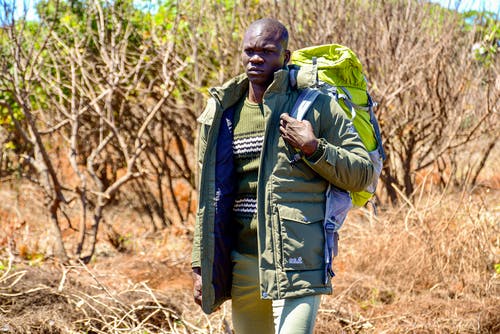Love to hike and want to get paid for doing it? There are plenty of opportunities out there for hiking and backpacking job-seekers. These can include working for organizations in either the public or private sector that focus on programming for children, teenagers, adults, or sometimes all three groups.
Hiking or Backpacking Jobs with Outdoor Education Groups
There are many outdoor education groups that use hiking and backpacking as a medium for introducing others, especially kids, to the natural world. Trips could be as short as a few hours in a local park or multi-week backpacking expeditions in remote wilderness locations. Most often this work is seasonal, but sometimes groups run programs throughout the year. Potential staff need to know how to be comfortable in the outdoors, be able to lead and teach others, and usually have to provide their own clothing and outdoor equipment. Some outdoor education groups that use hiking include:
The National Outdoor Leadership School: Also known as “NOLS” this non-profit based in Lander, Wyoming, runs thirty-day wilderness expeditions throughout the western United States and several other countries that focus on skill development and leadership.
The Appalachian Mountain Club: Based in the New England and Mid-Atlantic areas, the Appalachian Mountain Club runs outdoor education programs for both children and adults throughout the year. They also need volunteers to help with their programs.
To find a job with an outdoor education group, look online at Outdoored.com’s job board, which has postings for open positions.
Hiking or Backpacking Jobs with Government Organizations

State and Federal governments hire personnel either seasonally or full-time to be park rangers, land managers, researchers, interpreters, trail maintenance, or to fulfill other roles. These jobs require potential staff to be able to spend often lengthy periods of time outside in various conditions. Also, park staffers usually have to wear a park uniform.
Park Rangers: Interpret environmental and human resources to visitors, or enforce park rules and protect resources.
Researchers: Conduct studies and gather data in the field.
Trail Maintenance: Build, maintain, and repair trail systems, trail signs, and other backcountry facilities.
To find a job with the parks, check with the parks and recreation division with the state, or at USAJobs.gov for positions at the Federal level.
Hiking and Backpacking Jobs with Summer Camps
Summer camps are always looking for qualified staff to lead campers on day-hikes or longer backpacking trips. This is a great way for younger job-seekers to begin their backpacking and guiding careers. Camps train their staff how to work with youth, how to lead others in the woods, and how to handle different situations. Camps may be run by local community recreation departments, church groups, or national camping organizations such as the Boy Scouts and Girl Scouts. These can range from small camp programs, to very large programs such as Philmont Scout Ranch, the largest camp for the Boy Scouts of America.
A hiking or backpacking job allows for a beautiful office view, and the opportunity to teach and lead other about the outdoors.
How to Become an Adventure Travel Guide
Outdoors guiding jobs are hard work. They are also a way to combine business with pleasure and see the world while hiking, climbing, biking, paddling, or diving.
Location is one of the first practical considerations: Some places lend themselves to outdoors careers better than others. There aren’t too many professional hiking guides in Chicago, Illinois, but outdoorspeople living in states like Colorado or Washington can find plenty of work.
Skills and Certification for Adventure Travel Jobs
Skills and certification requirements vary by activity, location, and employer. Some employers are willing to train candidates who are promising, but don’t yet have expert skills. Others expect their guides to hit the trail running.
In some fields, such as SCUBA diving, internationally accepted standards govern certification and accreditation. But in hiking and mountaineering, requirements are very different from country to country.
To gain outdoor experience as a potential guide:
- Go hiking! Independent travel offers opportunities to pick up new experiences and skills. Long-distance backpacking, bicycling, or water travel trips are good ways to learn what it’s like to be in the oudoors day after day.
- Take classes. The National Outdoors Leadership School runs programs covering a variety of outdoor skills. Outward Bound also offers outdoors immersion courses. There are also private mountaineering schools, such as Rainier Mountaineering, many of them located on or near major peaks. In countries with national certification programs, prospective guides follow a set curriculum.
- Volunteer outdoors: Even urban areas offer plenty of opportunities to put outdoor skills to work. Volunteer as a leader for a local schools program (Sierra Club’s Inner City Outings Program runs trips for urban kids; local YMCAs and outdoors clubs run trips, too.)
- Get First Aid, CPR, and Wilderness First Aid training. When leading trips, the guide is the first responder in cases of emergency. The more medical training, the better. Wilderness courses tackle dealing with emergencies in remote places where help may be many hours away.
- Get experience. Non-profit organizations such as the Sierra Club, the Appalachian Mountain Club, or organizations affiliated with the American Hiking Society offer leadership opportunities. Usually, these are on a volunteer basis, but they provide valuable training and experience. Summer camps also offer skills training.
- Make contacts. Lots of jobs in this field are offered based on who has worked with whom.
Potential Employers and Income for Guiding Jobs
Potential employers include a wide range of businesses and sometimes, non-profit organizations Note, however, that many jobs are seasonal, or part-time, or are offered on a freelance/independent contractor basis (meaning no benefits.).
- International outfitters hire guides, but usually the guides live in the region where they are guiding or have extensive experience and some sort of a connection there.
- Closer to home, guides work at mountaineering schools, at outfitting shops that offer treks and trips, or for specialty outdoor travel companies.
- Some resorts (especially those involved with health and fitness) have outdoor hiking programs, and hire guides to take clients on trips.
- Income Expectations. Guiding in the outdoors is a “dream jobs” meaning that lots of people are willing to work for very little money. A highly trained guide at Canadian Mountain Holiday’s Heli-hiking program once quipped, “What’s the difference between a mountain guide and a pizza? A pizza can feed a family of four.” But he said it with a smile.
Guides aren’t in this for the money; they’re in it for the experience. Living in the outdoors and sharing it with others is indeed a dream job, for those with outdoor skills, a passion for adventure, and the ability to work with a wide variety of people.










